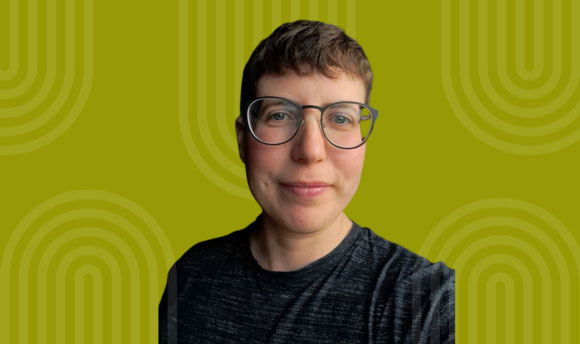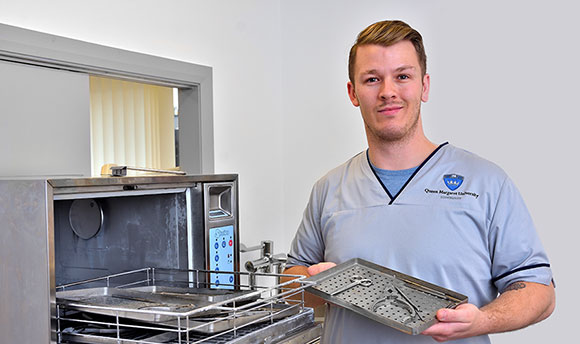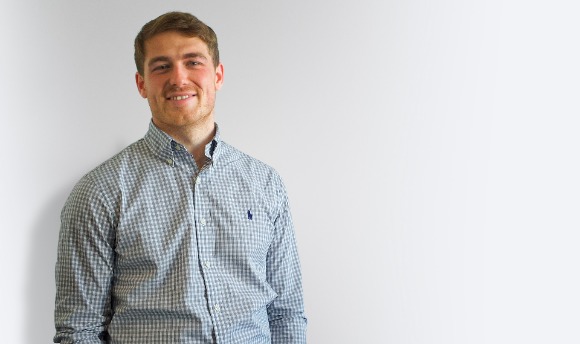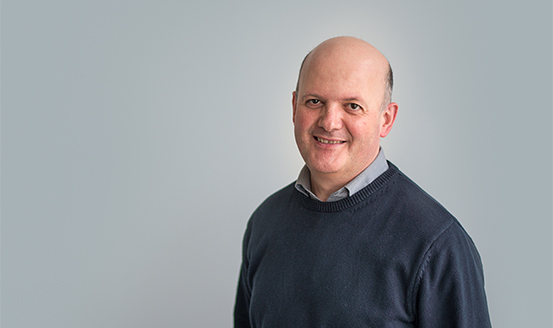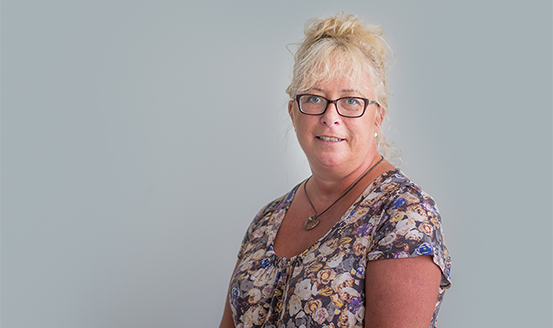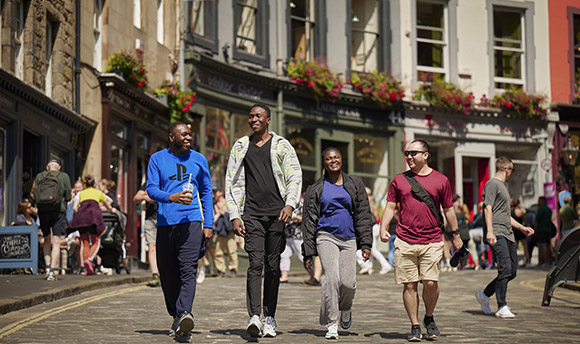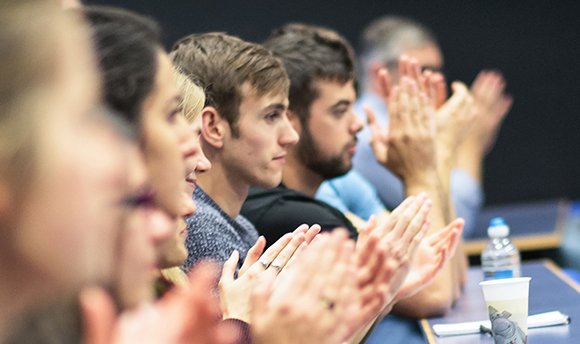- This course is available now through clearing.
- International applications close for the September intake on the 30 June 2025 for all applicants who would require to be sponsored on a Student visa to study here.
Master of Podiatry (MPod)/BSc (Hons) Podiatry*
This four-year undergraduate Master of Podiatry (MPod)/BSc (Hons) Podiatry course will equip you with the expertise and practical skills that you need to work as a registered podiatrist in the private or public health and social care sector. You will thrive in our supportive environment, and benefit from placements each year along with practical experience in our specialist clinical facilities on campus.
Whether you aspire to achieve a BSc (Hons) or an undergraduate master’s degree, we’ll guide you every step of the way. Please see the course structure section on this page for more information on the benefits of pursuing the undergraduate master’s route rather than the BSc.
*Please note all students apply and enrol onto the Master’s route and there will be an option to switch to the Bachelor route at the end of Year Two.

Why QMU?
- Learn from experienced research-active staff: You will be taught by experienced Health & Care Professions Council (HCPC) registered podiatrists alongside other staff who are professionally and research active in the NHS and private sector. Their applied research and professional links inform the teaching on the course, keeping it up to date with current developments in podiatry and podiatric practice.
- Practice placements provide the opportunity to integrate practice with theory: Learn real-world podiatry skills on placements within an NHS setting and on other practice-based opportunities with the private and third sector.
- Professional recognition and registration: This course is approved by the Royal College of Podiatry and the Health & Care Professions Council (HCPC). Successful completion enables application for registration with the HCPC as a podiatrist.
- Complete University Guide ranking: We are ranked in the top 5 of UK universities for Complementary Medicine (covering Music Therapy and Podiatry) (Complete University Guide 2025).
The benefits of studying for a podiatry degree at QMU
As a podiatrist you will be a healthcare professional who has been trained to diagnose and treat abnormal conditions of the feet and lower limbs. Podiatrists work with their patients to prevent and correct deformity, keeping people mobile and active, and helping to relieve pain. Podiatrists work with people of all ages, and your patients will count on you to support and help them with a broad range of mobility and medical conditions of the foot and lower limbs. These may include muscle and joint problems as well as broader health issues such as diabetes, blood disorders and disorders of the nervous system, which may involve complex wound management.
On this course you will:
- learn from research-active staff with an outstanding reputation for the quality of teaching;
- be equipped with all the knowledge and skills that you require to work as a podiatrist;
- develop your expertise through in-depth theoretical learning, clinical placements in each year and the close support of our very experienced staff;
- benefit from the interprofessional working focus of this course; and
- become confident in your own professional identity and have the additional skills that will allow you to work as an effective multidisciplinary team member.
Structure
During your first two years, you'll join a diverse cohort of students, exploring the fundamental principles of podiatry and gaining hands-on practice experience through placement-based learning within health and social care.
As you progress, you will move on to either the BSc (Hons) or the undergraduate master’s pathway depending on your aspirations and performance. Both pathways develop professional skills, knowledge and attributes through a combination of university and placement-based learning. The undergraduate masters offer an opportunity to delve deeper into areas such as leadership, service improvement, research and public health, at a higher level.
Upon graduation, both pathways lead to eligibility for registration with the HCPC, opening doors to a fulfilling career in podiatry.
Find out about the benefits of studying an undergraduate master’s.
Teaching, learning and assessment
You will learn in face-to-face and online lectures, seminars, tutorials and practical workshops. There will be a mix of classroom and online learning. Outwith timetabled sessions you will be expected to continue your own learning through self-study. You will be assessed by a variety of assessment methods (for example written and practical exams, written assignments, presentations) at the end of each module.
Placements
Placements are invaluable in consolidating theoretical study into practical expertise by working directly with patients and qualified staff. You will complete practice placements in each year. You will attend a variety of placements within the NHS at various locations across Scotland. QMU manages the sourcing and allocation of placements for each student.
To enhance future employability placements take place across Scotland. It is therefore likely that students will have to relocate for at least some of their practice-based learning unless they have individual requirements (eg specific health needs or school age children) that mean they must remain in a specific location.
Specialist facilities
QMU offers a variety of modern specialist spaces for use by our podiatry courses. We have a large multipurpose clinical room, a large orthotics laboratory with a separate machine room, and a fully functioning surgical suite which are all used to facilitate student learning and our on-campus patient-facing clinics. On-campus staff-supported clinics which we operate within the aforementioned spaces include: nail surgery clinics, nail surgery assessment and dressings clinics, and musculoskeletal/biomechanics clinics. We also provide simulated learning experiences within our clinical spaces to enable students to safely develop complex skills which can then be transferred into the practice education/clinical setting with patients. In addition, students will have access to additional laboratory-based environments for specific teaching for microbiology and physiology, thus enabling us to contextualise complex theory into practice.
Teaching staff, class sizes and timetables
You can read more about the teaching staff on this course at the bottom of this page. Please note that teaching staff is subject to change.
For more information, please also visit ‘How we teach and how you’ll learn’.
Year One
You will:
- be introduced to anatomy and physiology;
- study pathophysiology and microbiology, as well as beginning to learn about lower limb and foot conditions;
- prepare for clinical practice (and your professional development journey) by developing key skills, including communication skills, and explore the professional requirements to allow you to become a podiatrist;
- develop your academic and research skills including essay writing and how to access information to support your learning; and
- benefit from an early introduction to podiatry in the form of learning about clinical practice on placement - this provides the opportunity to allow you to integrate into the clinical environment.
Modules
- Podiatric Clinical Practice 1: Introduces relevant local policies and procedures, HCPC standards and fitness to practice standards as well as communications skills and patient centered care and biopsychosocial approaches for clinical practice. The module focuses on developing first line clinical skills for podiatric practice (vascular assessments, joint testing, muscle strength/function tests, neurological examination and skin and nail pathology) as well as orthotic practical sessions. There is also a theoretical component of the management of basic skin, nail, and structural pathologies.
- Becoming an Allied Health Professional: Explores the AHP professional context and related concepts, including communication, duty of care, person centered practice, professional ethics, HCPC governance and professional body guidance, health and social care strategy, and medicolegal concepts related to AHP practice.
- Anatomy: Introduces the terminology used in the study of anatomy and provides a detailed overview of the structural anatomy of the lower limb, including the knee hip and pelvis, but with particular emphasis on the foot and ankle.
- Physiology: Provides a knowledge base on the human body and its functions, focusing on neuromuscular, cardiovascular, respiratory, endocrine, renal, hepatic and gastrointestinal systems.
- Pathophysiology and Microbiology: Provides new knowledge and understanding of the pathological processes relating to the systems covered in human physiology. Introduces the concept of problem-based medicine and provides deeper understanding of physiological processes and the application to the clinical context. In addition, it covers microorganisms (e.g., bacteria, fungus and viruses) and its relevance to interactions with humans and health. There will be a practical element focusing on laboratory skills in microbiology, introducing techniques and discussion of experimental results in relation to clinical practice, as well as laboratory skills in microbiology including practical techniques and discussion of experimental results in relation to clinical practice.
- Developing Resilience of Self and Others for Professional Practice: Explores wellbeing and resilience of the self and others, developing strategies that support personal and professional development and can enhance person-centred practice within the health and social care settings.
- Finding Your Academic Voice: Introduces research methods skills to develop the ability to engage with information and developing critical thinking.
Year Two
You will:
- undertake modules that explore human walking and musculoskeletal problems;
- continue to broaden your understanding of health and wellbeing and how to influence and facilitate behaviour change;
- further develop your academic skills by exploring how knowledge can be acquired, applied and integrated into practice;
- learn more about medicine and pharmacology; and
- continue to develop your practical skills through further supported clinical placement.
Modules
- Podiatric Clinical Practice 2: Further develops investigation and diagnosis skills in a range of lower limb musculoskeletal/orthopaedic pathologies with more advanced testing and considers appropriate therapeutic regimes including the use of functional foot orthoses, taping and rehabilitation techniques. In addition, the theoretical knowledge and practical skills required to administer local analgesia are covered in preparation for surgery in levels 3 and 4. Students also attend external placements.
- Mechanics of Normal and Pathological Gait: Introduces biomechanical principles and applies these to underpinning the knowledge and understanding of normal (including normal variants of gait) and pathological gait as well as management of gait disorders.
- MSK/Orthopaedics: Develops students’ understanding of a wide range of musculoskeletal (MSK) pathologies impacting the body, and in particular the lower limb(s). Explores the aetiology, pathophysiology and management of these conditions, including exploring the differences between adult and paediatric presentations, and their management.
- Health Coaching Conversations: Further develops the skills in communication and health coaching for supporting behaviour change as well as understanding the impact of different communities, health and social care contexts on health and wellbeing for both individuals and groups.
- Developing a Spirit of Inquiry: This continues the theme of research methods further developing the knowledge base in critical thinking and enquiry approach to professional practice covering research ethics and different approaches to conducting research.
- Pharmacology for Podiatrists: Focuses on modes of drug administration and develops an understanding of the principles of drug action (including pharmacodynamics and pharmacokinetics) and develops an understanding of the underlying principles of pharmacological therapy and the rationale for treatment.
Year Three
You will:
- enhance your critical thinking, research skills and further develop your knowledge of foot and ankle imaging modalities through the modules offered this year;
- continue to broaden your healthcare awareness and challenge your understanding of health education and promotion, as well as develop your key skills in working as part of a multidisciplinary team;
- continue to extend and strengthening your knowledge and skill in research; and
- continue to link theory and practice during a range of clinical placement opportunities.
Modules
- Podiatric Clinical Practice 3: Develops more complex skills with examination and evaluation of the ‘high risk’ lower limb, by developing high level psychomotor skills, and by developing skills to undertake evidence based podiatric practice. Students will also undertake assessment of surgical patients as well as injection of local anaesthesia, carry out nail surgery and manage surgical wounds. On placement students will also manage higher risks patients.
- Theoretical and Clinical Approaches to Multidisciplinary Team Working: Provide an opportunity for students to experience simulated teamworking and reflect upon their contribution and experiences as a member of a real-world style multidisciplinary team.
- Diagnostic Investigations for Podiatric Practice: Develops students’ understanding of a wide range of diagnostic investigations, eg blood tests, immunology investigations, medical imaging, clinical tests (and more). Through case-based discussion, this module will support students translating this theory to practice in order to improve diagnostic capabilities in relation to podiatric practice.
- Active Citizenship: Considers and develops a critical understanding of active citizenship approaches to improving health in wider societal contexts.
- Understanding and Appraising the Evidence for Practice: Further develops research methods skills in preparation for dissertation by developing an in-depth understanding of approaches to research, applying knowledge in order to critically appraise evidence and form reasoned conclusions and develop the advanced research skills and knowledge necessary to undertake an independent research project.
- Medicine and Pathology: Explore medicine and pathology and how it applies to podiatric practice by developing a knowledge and understanding of physical and biopsychosocial manifestations of systemic diseases. In addition, it develops a critical understanding of the principals, theories and concepts surrounding medicine and pathology.
Year Four
You will:
- enhance your critical thinking, research skills and further develop your knowledge of foot and ankle imaging modalities through the modules offered this year;
- continue to broaden your healthcare awareness and challenge your understanding of health education and promotion, as well as develop your key skills in working as part of a multidisciplinary team;
- continue to extend and strengthening your knowledge and skill in research; and
- continue to link theory and practice during a range of clinical placement opportunities.
Modules
- Podiatric Clinical Practice 4: Fulfils the requirements for eligibility for HCPC registration, by developing advanced skills in the examination, diagnosis, treatment and evaluation of the ‘high risk’ lower limb. Students continue their surgical training as well attending external placements with patients with more complex needs.
- Advancing Clinical Practice: Facilitates the opportunity to work in specialist areas of podiatric practice (eg surgical, diabetes, rheumatology, etc).
- Tissue Viability: Facilitates the critical evidence based investigative skills for factors contributing to cutaneous ulceration, viable assessment techniques and the effectiveness of current management approaches.
- Medical Imaging of the Foot and Ankle: Provide an understanding of different diagnostic modalities (including x-ray, diagnostic ultrasound, fluoroscopy, MRI, CT, nuclear and other advanced imaging techniques) focusing on the foot and ankle and develops evaluation and interpretative skills of musculoskeletal and orthopaedic pathologies to facilitate practice.
- Applying Skills of Critical Enquiry (project): Applies the skills of research and enquiry in a small-scale study which demands a professional approach, academic rigour, independence and self-direction; demonstrating substantial initiative and problem solving skills and ability to apply skills of critical enquiry in order to plan, design, implement and evaluate the project.
- Leadership and Enterprise in Health Practice: Evaluates and applies the concepts of leadership and leading change, intra/entrepreneurship and innovation within the health and social care sector and explores opportunities for leading and developing enterprising ideas for health and well-being.
NB The modules listed here are correct at time of posting (Feb 2024) but may differ slightly to those offered in 2025. Please check back here for any updates.
A career in podiatry can be very gratifying, rewarding and varied and it is up to you which path to take. There are excellent clinical opportunities in the NHS and in private practice. Private Podiatry practices have been on the rise in recent years due to demand, this provides a plethora of options for the newly qualified Podiatrist.
You may also wish to start up your own business. Due to the demand for private podiatry, we are seeing an increasing number of graduates start up their own podiatry clinics across the country, the basis of which is taught within the podiatry course on our Leadership and Enterprise module. Private podiatry salaries can vary significantly from part to full time and from employed to business owner, with salaries of private practitioners reported by The Royal College of Podiatry as £20,000 to upwards of £1,000,000 per annum. In the NHS salaries also vary depending on expertise from £28,000 and upwards. (https://rcpod.org.uk/become-a-podiatrist/career-opportunities-and-scope)
Some of our graduates also move on to do some postgraduate research or postgraduate courses to enhance their knowledge and advance their skills.
Our alumni are currently enjoying careers in the NHS and private practice, and in the areas of sports medicine, musculoskeletal/orthopaedics, diabetes, rheumatology, community clinics, foot surgery and paediatrics.
Read Podiatry lecturer, Joe McIntyre's blog 'Things you might not know about a career in Podiatry'
If you are interested in our Master of Podiatry (MPod)/BSc (Hons) Podiatry course, or would like to learn more about Podiatry at QMU, we offer opportunities for you to shadow our on-campus student clinic. This experience will give you the chance to speak to staff and current students and gain a greater insight into the profession, as well as a feel for student life at QMU. If you are interested in taking part, please contact Neil Pomfret (Admissions Tutor for the Podiatry Team).
Entry requirements
Scottish Higher: Standard: BBBC Minimum: BCCC
A Level: CCC
Irish Leaving Certificate: H2 H3 H3 H3
International Baccalaureate: 28 points
International: IELTS of 6.0 with no element lower than 6.0. Please be aware that the minimum standard required for HCPC registration is IELTS score of 7.0 with no element below 6.5.
Required subjects: One science at Higher/A Level or equivalent is preferred. One science at Nat 5 C/4 or above is required. English and Maths at Nat 5/GCSE at grade C/4 or above. We can also accept National 5 Application of Maths or Lifeskills at the same grade.
Am I a Widening Access student?: We apply the minimum entry criteria to applicants who meet one or more contextual factor. To see if this would apply to you, please refer to the access and application page.
Mature/Access: We welcome applications from mature students with other relevant qualifications and/or experience. Visit our College Leavers and Mature Students Advice page for more information.
Direct Entry: Not available. Relevant HN qualifications may be considered for entry to Year One.
Other requirements
- A satisfactory criminal records check from the Protection of Vulnerable Groups (PVG) Scheme, an occupational health check and personal indemnity insurance (normally through membership of the professional body) are required.
- You may be requested to be immunised against Hepatitis B.
Other costs
- The cost of professional indemnity insurance is the responsibility of the student. For more information on this, visit the UG 2025 fees page on our website.
- The additional costs associated with placement travel and accommodation are the responsibility of the student. Students who receive SAAS funding may be able to claim for some of these expenses to be reimbursed.
- Uniform, PVG and badge costs – please see UG 2025 fees page on our website.
Disability/health conditions
If you have a disability, long-term physical or mental health condition, or learning disability, it should not stand in the way of your studying at QMU. However, if you are not sure whether your disability might be a barrier in your studies or in relation to the professional standards, please contact the disability service who will be able to have a conversation with you about reasonable adjustments and supports available to you.
How to apply
Application for this course should be made through UCAS. More application information is available in the 'Start your Application' box at the top right of this page.
Terms and Conditions
- The delivery of this course is subject to the terms and conditions set out in our 2025/26 Entry Terms and Conditions (Undergraduate).
- The course information on this page is correct at the time of posting (Feb 2024) but may differ slightly for 2025 entry. Please check back here for updates.
QMU
Podiatry expert commentator and QMU lecturer, Bruce Morris
Why choose Podiatry?
Our Specialist On-Campus Facilities for Podiatry:
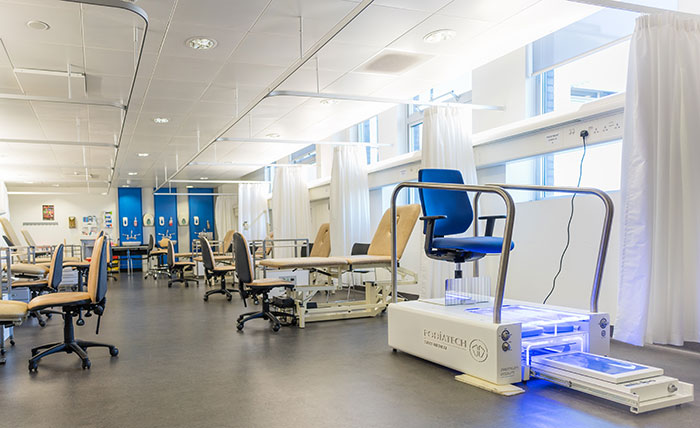
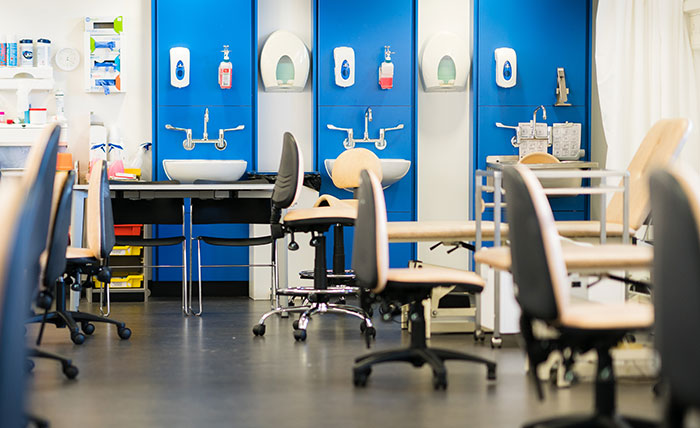
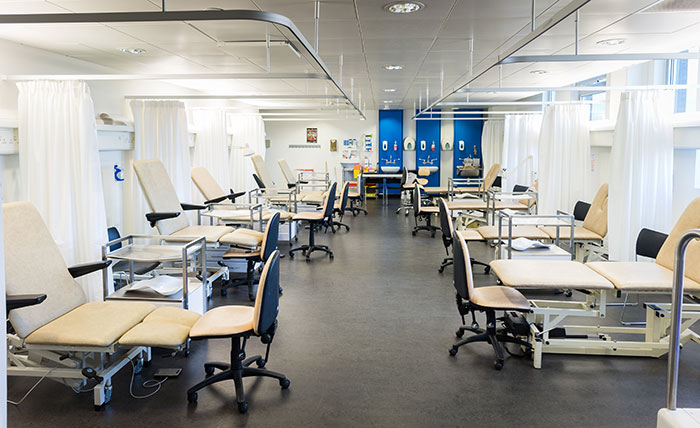
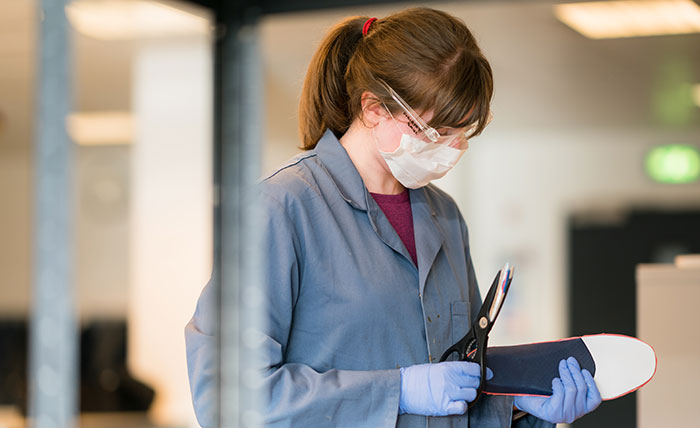
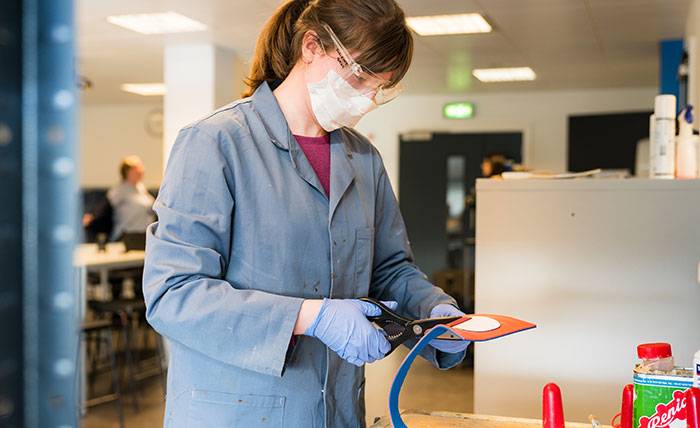
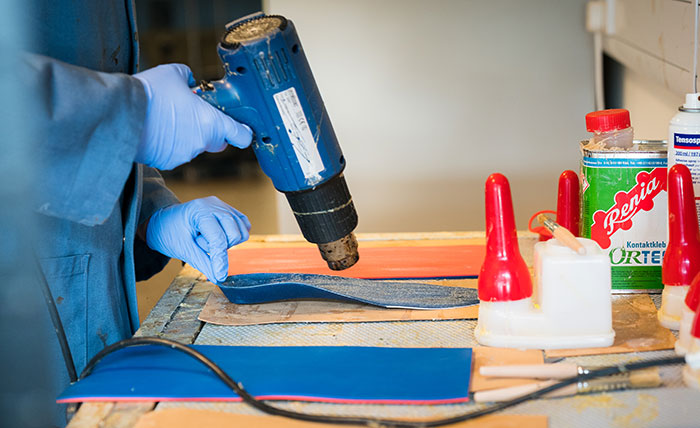
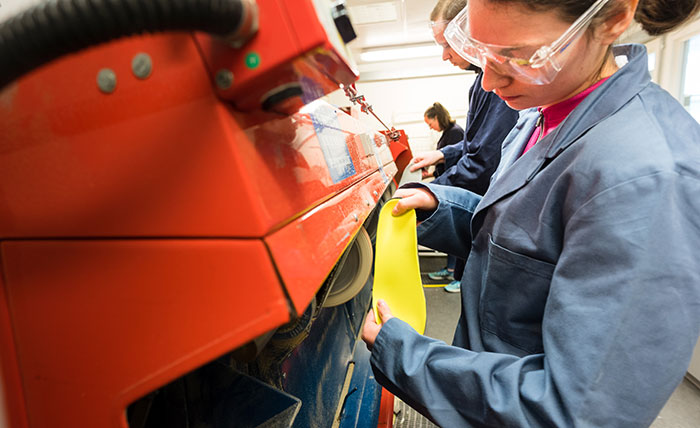
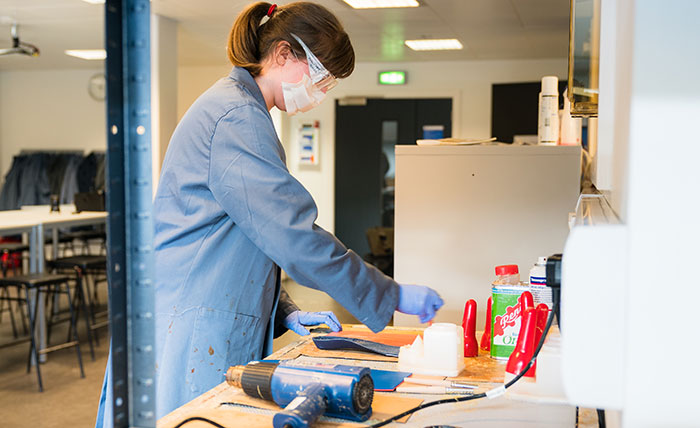








Course Overview
A Student Story
“As a student of QMU, I am no longer overlooked - I am more than just a number. I have people who are 100% behind me and are helping me achieve my goals. This encouragement means I’ve developed a passion for learning and I always keep classes running late because I ask so many questions".
read my story...Useful links
Opportunities to meet us: open days and more
As well as open days, we offer campus tours and online events throughout the year to help you find out more about student life and studying at QMU.
Open days and other ways of meeting us: more informationCourses You Might Also Like
- Master of Nutrition (MNutrition)/BSc (Hons) Nutrition (2025 entry)
- Master of Dietetics (MDiet)/BSc (Hons) Dietetics (2025 entry)
- Master of Nursing (MNurse) (2025 entry)
- Master of Radiography: Therapeutic (MTRad)/BSc (Hons) Radiography: Therapeutic (2025 entry)
- Master of Speech and Language Therapy (MSLT)/BSc (Hons) Speech and Language Therapy (2025 entry)
- BSc (Hons) Nursing (2025 entry)
